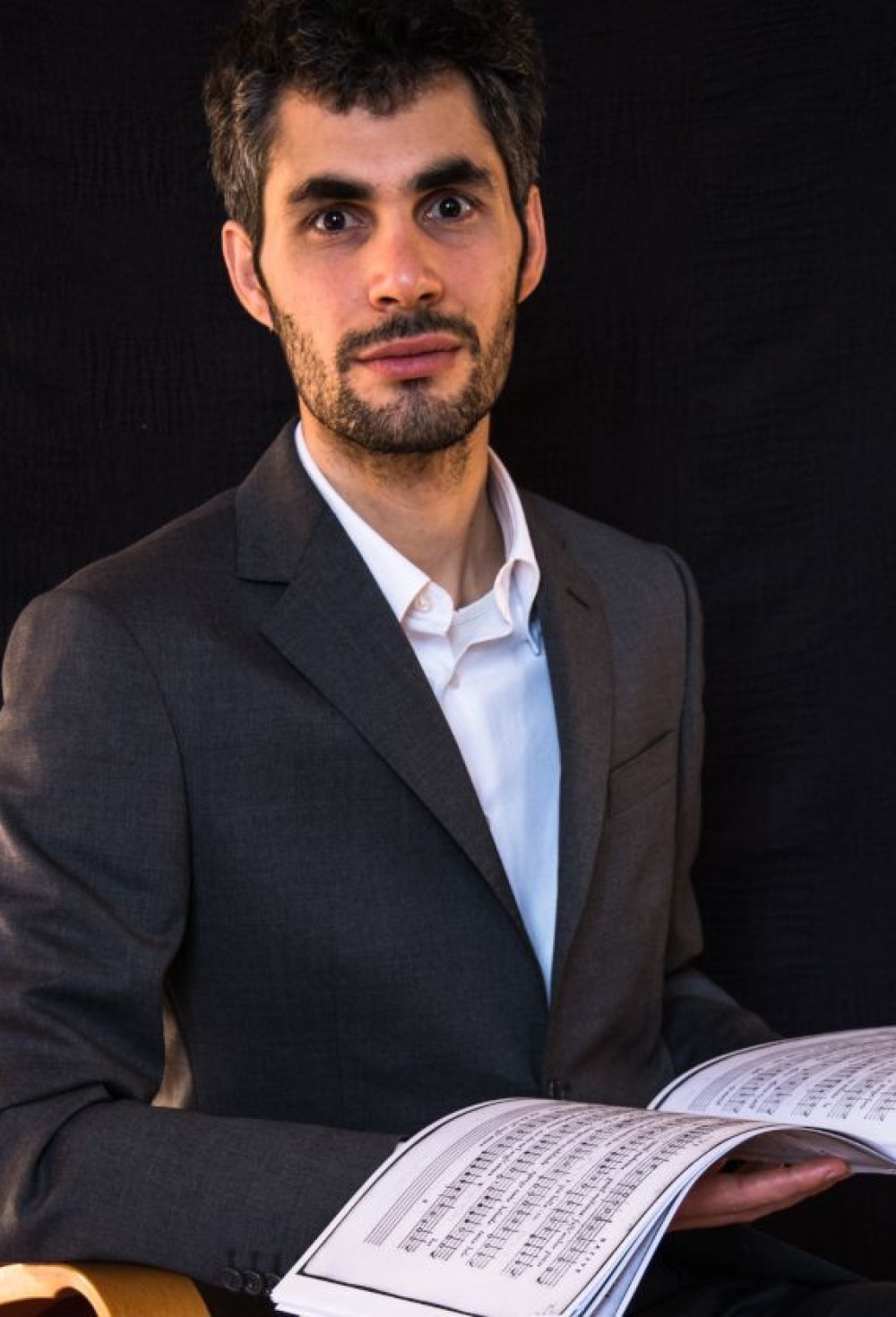Nicholas Cornia

Nicholas Cornia, born in Rome in 1989, considers himself neither a scientist nor an artist, but rather a special combination of the two. He studied Mathematics and Physics at the University La Sapienza of Rome. After two years as Phd student at the Informatics Department of the University of Amsterdam he decided to dedicate himself to music at the Royal Conservatoire of Ghent, where he studied Classical Singing, Music Theory and Pedagogy. Since 2018 he has been active as artistic director of the ensemble Le Vecchie Musiche, creating original musical projects based on interdisciplinary research. In 2022, he joined the research group Labo XIXXX at the Royal Conservatoire of Antwerp as the main investigator of the FAAM project, a Digital Humanities platform for music annotations in the long 19th century. He is also research assistant at Orpheus Instituut since 2023, working on the Resounding Libraries project.
Arabella Pare

With a background in piano performance and musicology, Arabella Pare specialises in the chamber and piano music of the 18th and 19th Centuries, the aesthetics of musical fragmentation, and research into practices and documents of performance and interpretation. After beginning her studies as a pianist at the Royal Academy of Music, London, she continued at the Musikhochschule Lübeck and the Hochschule für Musik Karlsruhe. Further important musical influences arose from lessons with the cellist Peter Buck and the pianists Péter Nagy and Earl Wild. Active internationally as a soloist and chamber musician, Arabella Pare engages with performative modalities for expanding concepts of canon and concert programming.
Beginning with her doctoral dissertation on the fragmentary piano sonatas of Franz Schubert, (published in 2022 in the series “Schubert : Perspektiven – Studien”) Arabella Pare’s musicological activities continue as an author of articles on interpretation, performance practices and historical-cultural analysis (her publications include the examination of Beethoven’s Op. 11 Trio – Gassenhauer – in the context of a musically cosmopolitan Vienna and an interpretational analysis of Karl Böhm’s 1936 Beethoven piano concerto releases) and a speaker at conferences relating to music, philosophy, and aesthetics. She is also secretary of the Internationale Schubert Gesellschaft e.V., Tübingen.
Arabella Pare is a professor for artistic research at the Hochschule für Musik Karlsruhe, where she is deeply committed to finding transdisciplinary connections in her work. These aims appear most recently in projects focused on potential pedagogical impact of live- feedback tools in instrumental teaching, the realization and performance of works based upon Iannis Xenakis’s Free Stochastic Music with the professors and students of music informatics and the SAM•ComputerStudio, and as a participant in the development of a research project on pianism and artificial intelligence.